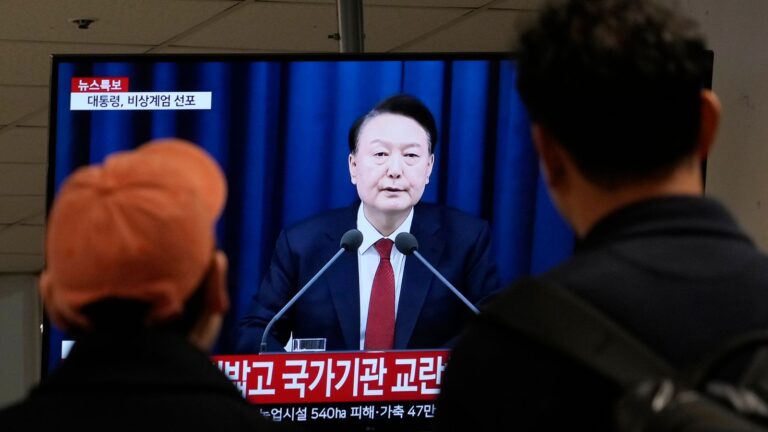The president of South Korea has declared “emergency martial law”, accusing the country’s opposition of controlling the parliament and sympathising with North Korea.
Yoon Suk Yeol announced he was taking the step, which enacts temporary rule by the military, during a late night televised briefing on Tuesday, saying it was critical for defending the country’s constitutional order.
“I declare martial law to protect the free Republic of Korea from the threat of North Korean communist forces, to eradicate the despicable pro-North Korean anti-state forces that are plundering the freedom and happiness of our people, and to protect the free constitutional order,” Mr Yoon said.
South Korea martial law: Follow live updates
It was not immediately clear how the steps will affect the country’s governance and democracy, but the country’s Yonhap news agency, reported that all media and publishers will be under its control and activities by parliament and political parties will be banned.
The opposition Democratic Party, which is led by Lee Jae-myung, said parliament will try to “nullify” the president’s martial law, according to South Korean news channel YTN.
Mr Lee called all politicians from his party to gather outside the country’s National Assembly, Yonhap reported.
According to the law in South Korea, the government must lift martial law if the majority of the National Assembly demands in a vote.
YTN also reported that the leader of the country’s Ruling People Power Party, Han Dong-hoon, called the martial law “wrong” and vowed to block it.
A White House spokesperson said that the Biden administration is monitoring the situation closely.
Since taking office in 2022, Mr Yoon has struggled to push his agendas against an opposition-controlled parliament.
His conservative People Power Party has been in a deadlock with the liberal Democratic Party over next year’s budget bill.
Minsters protested the move on Monday by the Democratic Party to slash more than four trillion won (approximately £2.1bn) from the government’s budget proposal.
Mr Yoon said that action undermines the essential functioning of government administration.
The president has also dismissed calls for independent investigations into scandals involving his wife and top officials, which has drawn criticism from his political rivals.
Security and defence analyst Professor Michael Clarke told Sky News that the government in South Korea has been in “crisis” for a couple of years.
“Yoon has been leading a minority government for some time, against him the Democratic Party have just frustrated whatever he has tried to do,” Clarke said.
“He has decided to get ahead of his opposition by creating this move.”
“The last thing that liberal democracy needs at the moment is one of the democracies of Asia turning into a short term dictatorship, so I think this is only a short term parliamentary manoeuvrer, but it may turn out to be more.”
Martial law is typically temporary, but it can continue indefinitely. It is most often declared in times of war and/or emergencies such as civil unrest and natural disasters.





